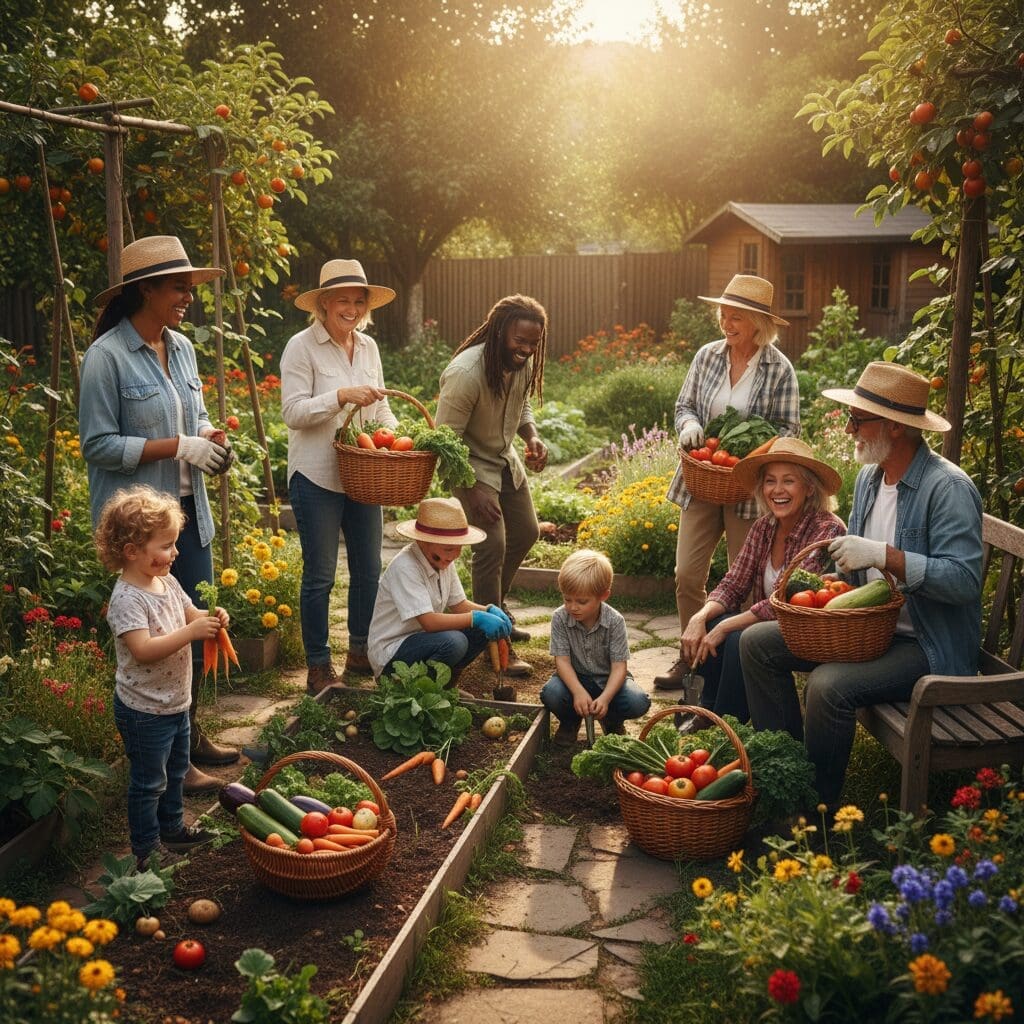From Concrete to Canopy: 10 Transformative Benefits of Urban Gardening

Amidst the concrete and steel of modern cities, a quiet but powerful transformation is underway. Balconies are bursting with tomatoes, rooftops are turning into lush farms, and neglected lots are becoming vibrant community hubs.
Urban gardening is blossoming, offering a tangible connection to nature and a host of benefits that ripple through our personal lives, our communities, and the environment. This article delves into why this green movement is a critical component of a healthier, more sustainable urban future.
Environmental Perks: Greening the Concrete Jungle

Urban gardens are small-scale environmental powerhouses. According to the U.S. Environmental Protection Agency (EPA), these green spaces help combat the ‘heat island’ effect, where urban areas are significantly warmer than rural ones, by providing shade and releasing moisture.
Plants act as natural air purifiers, filtering pollutants and producing precious oxygen. Furthermore, by growing food locally, we drastically reduce ‘food miles’—the long distances food often travels from farm to plate—which cuts down on carbon emissions and our collective environmental footprint.
These green pockets also create vital habitats for pollinators like bees and butterflies, which are essential for a healthy ecosystem.
Health and Wellness: A Harvest for Body and Mind

The health benefits of gardening are profound. It provides easy access to fresh, nutrient-dense fruits and vegetables, free from the pesticides and preservatives common in mass-produced foods. Imagine using your own harvest to bake a delicious vegan lemon blueberry bread or to blend into a healthy vegan protein shake.
The physical act of gardening—digging, planting, watering—is a form of moderate exercise that improves strength and flexibility. Mentally, interacting with nature is a proven stress-reducer.
In fact, as outlined in a review from the Journal of Health Psychology, the focused, meditative process of caring for plants can lower anxiety, improve mood, and foster a deep sense of accomplishment and well-being.
Community and Connection: Planting Seeds of Togetherness

Gardens have a unique ability to bring people together. The American Community Gardening Association (ACGA) emphasizes that community gardens, in particular, serve as social hubs where neighbors from diverse backgrounds can connect, collaborate, and share knowledge.
They foster a sense of shared ownership and pride in the neighborhood, often leading to safer and more cohesive communities. These spaces also become outdoor classrooms, teaching children valuable lessons about food, nature, and teamwork.
By working the soil side-by-side, residents build stronger social bonds and a more resilient local food system.
Conclusion
Urban gardening is a simple yet revolutionary act. It empowers individuals to reclaim a piece of nature, take control of their food source, and actively improve their environment.
It proves that even in the most densely populated areas, we can cultivate not just plants, but also healthier lifestyles, stronger communities, and a more sustainable world. Whether you have a sunny windowsill or a community plot, planting a seed is an investment in a greener, brighter future.
